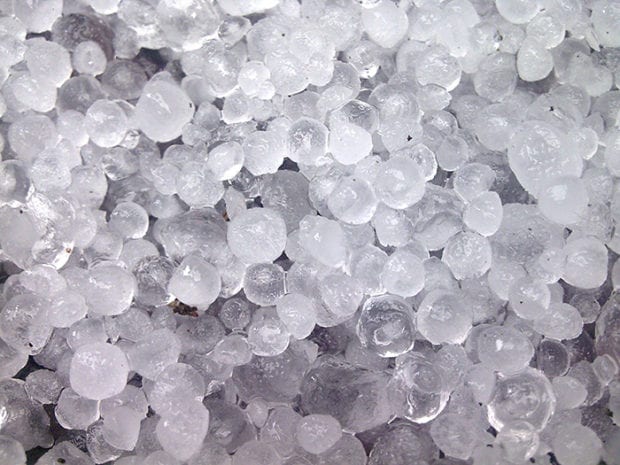Hail Damage to Air Conditioning Unit: What You Need to Know
Updated on 07/01/2019
Worried about hail damage to your air conditioning unit? When you hear the phrase hail damage, many Indiana homeowners don’t think how it can damage their air conditioner–but it can. Indiana ranks 7th in the United States by number of properties that have experienced damaging hail events.
We all know the damage hail can do to our cars, roofs, and gutters. Most times, hail causes just cosmetic damage, but sometimes key components to an air conditioning unit can get damaged in a serious hail storm.
Here’s what you need to know about hail damage to your air conditioner.

Can Hail Damage My Air Conditioner?
Absolutely it can. Hail can cause serious damage to your air conditioning unit, especially if it’s mounted on the roof of your home or business. Air conditioning units mounted on the ground can also be damaged by hail. Especially if the unit is located on the side of your house facing south or west.
Parts of Air Conditioner Most Vulnerable to Hail Damage
With central air conditioning, some components sit inside your home, safe from storms. But outside your home also sits the condenser unit that holds many key components for extracting the air from inside your house, cooling it across refrigerated coils, and blowing it back into your home—including a condenser coil, refrigerant, compressor, fan unit, and metal fins.
And while your unit consists of metal walls and screens—designed to protect many elements—it’s not fully impenetrable. Hail can still dent the outside of your air conditioning unit. But more importantly, it can also dent the fan’s fins, which—while made from metal—are still fairly soft and malleable.
How Hail Can Damage Your Air Conditioning Unit
Enough hail abuse can reshape the fins inside your condenser unit and render them inoperable, or ineffective at best. And what does that mean?
Damaged metal fins reduces the air flow throughout your system. And as a result, less hot air flow gets pulled from your house, meaning less cool air can be produced from the refrigerated coils. In short, your unit’s working harder to produce minimal results.
In short, it means you’ll be hot inside your house.
What to Do When it Appears Hail Has Damaged Your Indianapolis Air Conditioner
After a hailstorm, you may notice your air conditioner running less efficiently. And if that’s the case, it’s a good idea to first check your homeowners insurance and see if your policy covers HVAC damage. Then call a licensed contractor to review your system. If you are covered, be sure to let your technician know you only want an assessment at this time. If you’re not covered, some work may need to be done, depending on the findings from the assessment.
Need Your Air Conditioner Inspected After a Hail Storm?











